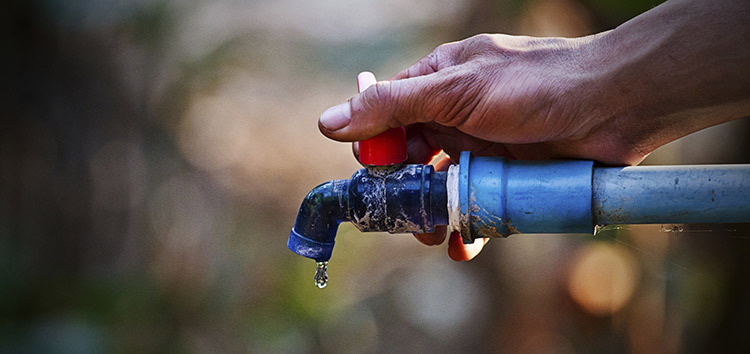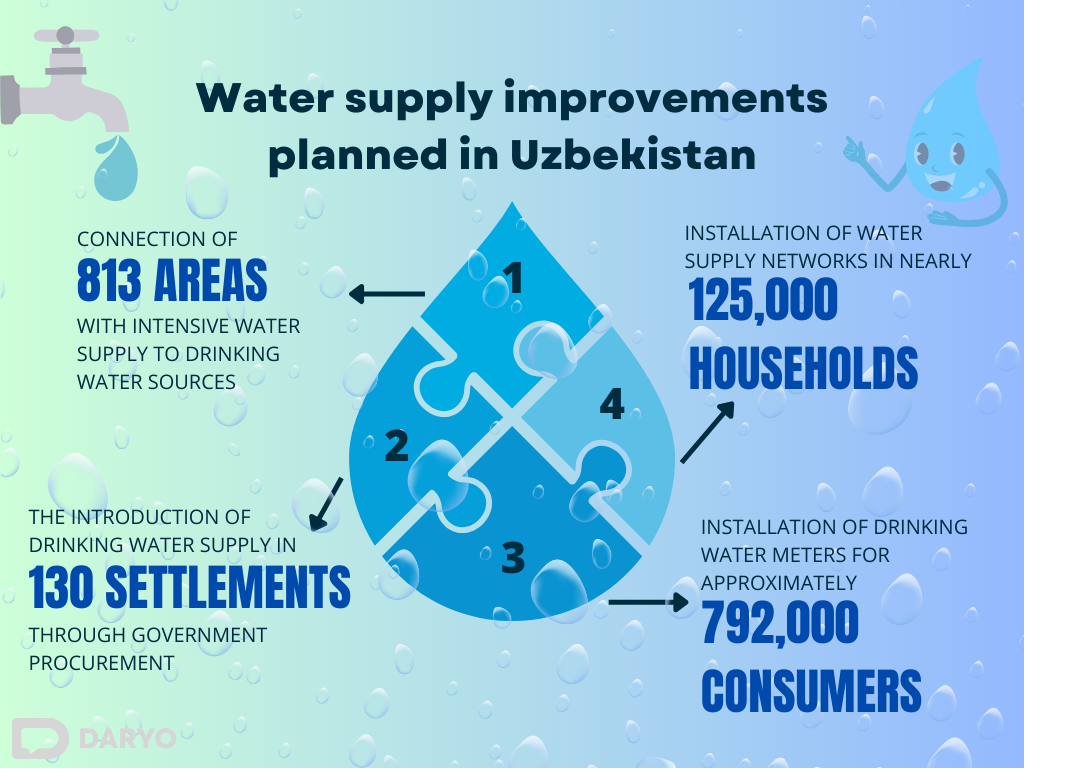Uzbekistan is set to implement changes in its water management system, including transitioning to cost-based water tariffs and privatizing drinking and sewerage water supply services. These measures are part of a broader effort to modernize and enhance the efficiency of water services in the country.
Effective from January 1, 2024, water tariffs for cold water and sewerage will be determined based on the actual cost of services provided.

The privatization of drinking and sewerage water supply is another key aspect of these reforms. New joint-stock companies will be established based on Uzsuvtaminot and its subsidiaries. These companies will be responsible for the management of various water supply organizations, including regional main water supply organizations and regional drinking water supply organizations in Karakalpakstan, regions, and Tashkent. This restructuring is expected to bring greater efficiency and accountability to water resource management.
The government has also placed emphasis on infrastructure development. Facilities will need to ensure full coverage with water supply services, extending access to clean drinking water and efficient sewerage services to more areas.

Over the next few years, significant improvements in water supply are planned, including the connection of 813 areas with intensive water supply to drinking water sources, installation of water supply networks in nearly 125,000 households, the introduction of drinking water supply in 130 settlements through government procurement, and the installation of drinking water meters for approximately 792,000 consumers.
A notable component of these reforms is the involvement of the private sector. Starting from July 1, 2024, drinking and sewerage water supplies will be managed by the private sector through Public-Private Partnership (PPP) arrangements. This approach will be piloted in several cities, such as Kagan, Shirin, Bekabad, and Yangiyor.
Follow Daryo's official Instagram and Twitter pages to keep current on world news.
Comments (0)